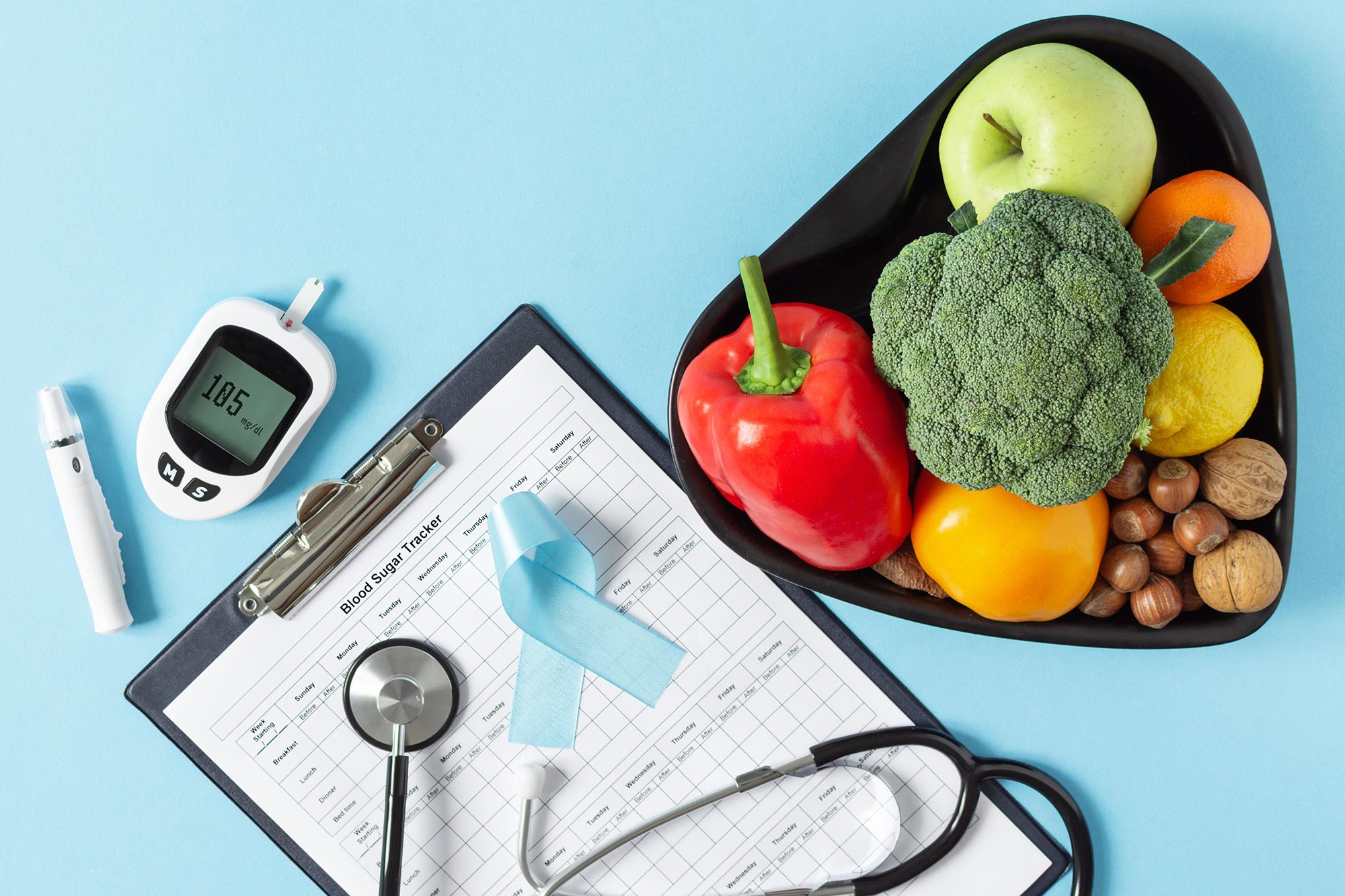Is “food as medicine” a game changer for diabetes?

Providing healthy meals to people with type 2 diabetes slightly reduced blood sugar levels, highlighting the need for continued research to refine diet-as-medicine programs.
Study of rigorous trials shows mixed results and suggests the need to continue examining how nutrition can combat a pervasive disease.
How can a healthy diet improve diabetes? A new health care program attempting to treat diabetes through better nutrition shows very modest impact, according to the first fully randomized clinical trial on the subject.
The study, co-authored by MIT Health economist Joseph Doyle of the MIT Sloan School of Management follows participants in an innovative program that provides healthy meals to simultaneously combat diabetes and food insecurity. The experiment focused on type 2 diabetes, the most common form.
Results and implications of clinical trials
The program involved people with high blood sugar levels, in this case a hemoglobin HbA1c level of 8.0 or higher. Clinical trial participants who were fed food to prepare 10 nutritious meals per week saw their hemoglobin A1c levels drop by 1.5 percentage points over six months. However, trial participants who did not receive any food saw their HbA1c levels drop by 1.3 percentage points during the same period. This suggests that the relative program effects were limited and that providers need to continue to refine these interventions.
“We found that when people accessed the program (got food), their blood sugar levels went down, but the control group had almost the same drop,” says Doyle, the Erwin H. Schell Professor of Management at MIT Sloan.
Food insecurity and health outcomes
Since these types of efforts have barely been studied in clinical trials, Doyle adds, he doesn't want any one study to be the final word and hopes it will spur more research to find methods which will have a significant impact. Additionally, programs like this also help people who don't have access to healthy foods in the first place by dealing with their food insecurity.
“We know that food insecurity is problematic for people, so addressing it in itself has its own benefits, but we still need to figure out how best to improve health at the same time if we're going to address it through the system health. », Adds Doyle.
Research Methodology and Participant Demographics
The article titled “The Effect of an Intensive Food as Medicine Program on Health and Health Care Utilization: A Randomized Clinical Trial” was recently published in JAMA Internal Medicine.
The authors are Doyle; Marcella Alsan, professor of public policy at the Harvard Kennedy School; Nicholas Skelley, predoctoral research associate at the MIT Sloan Health Systems Initiative; Yutong Lu, predoctoral technical associate at the MIT Sloan Health Systems Initiative; and John Cawley, professor in the Department of Economics and the Department of Policy Analysis and Management at Cornell University and co-director of the Cornell Institute on Health Economics, Health Behaviors and Disparities.
Study execution and results
To conduct the study, researchers partnered with a major healthcare provider in the Mid-Atlantic region of the United States, which has developed food as medicine programs. Such programs have become increasingly popular in health care and could be applied to the treatment of diabetes, which involves high blood sugar levels and can lead to serious and even fatal complications. Diabetes affects approximately 10 percent of the adult population.
The study consisted of a randomized clinical trial of 465 adults with type 2 diabetes, centered at two sites in the healthcare provider's network. One location was part of an urban area and the other was rural. The study ran from 2019 to 2022, with a year of follow-up testing beyond that. People in the study treatment group received 10 healthy meals per week for their families over a six-month period and also had the opportunity to see a nutritionist and nurses. Participants in the treatment and control groups underwent periodic blood tests.
Analyze program effectiveness
Adherence to the program was very high. Ultimately, however, the reduction in blood sugar levels experienced by people in the treatment group was only slightly greater than that of people in the control group.
These results lead Doyle and his co-authors to seek to explain why the dietary intervention did not have a greater relative impact. First, he notes, there might be a fundamental reversion at play: Some people in the control group with high blood sugar levels were likely to improve their blood sugar levels, even without being registered in the program.
Future Directions and the Role of Meal Preparation
“If you look at people with poor health, many of them will naturally improve as they take steps to move away from that danger zone, such as moderate changes in their diet and physical exercise,” says Doyle.
Additionally, because the healthy eating program was developed by a health care provider who engaged with all participants, those in the control group may still have benefited from medical engagement and therefore performed better than a control group without access to health care.
It is also possible that COVID-19 The pandemic, which took place during the period of the experiment, affected the results in some way, although the results were similar when looking at the results before the pandemic. It is also possible that the effects of the intervention will manifest themselves over an even longer period.
And although the program provided food, it left participants responsible for preparing meals, which could pose a barrier to program compliance. Potentially, prepared meals could have a greater impact.
“Experimenting with providing these prepared meals seems like a natural next step,” says Doyle, who emphasizes that he would like to see more research on feeding programs as medicine targeting diabetes, particularly if these programs evolve and try different formats. and features.
“When you find that a particular intervention doesn't improve blood sugar, we don't just say we shouldn't try it at all,” says Doyle. “Our study definitely raises questions and gives us new answers that we haven't seen before. »
Support for the study came from the Robert Wood Johnson Foundation; the Abdul Latif Jameel Poverty Action Laboratory (J-PAL); and the MIT Sloan Health Systems Initiative. Outside of the submitted work, Cawley reported receiving personal fees from Novo Nordisk, Inc, a pharmaceutical company that makes diabetes medications and other treatments.
